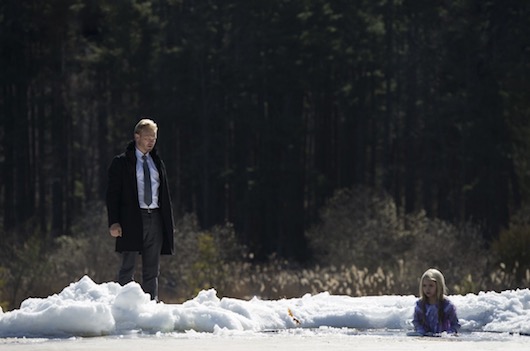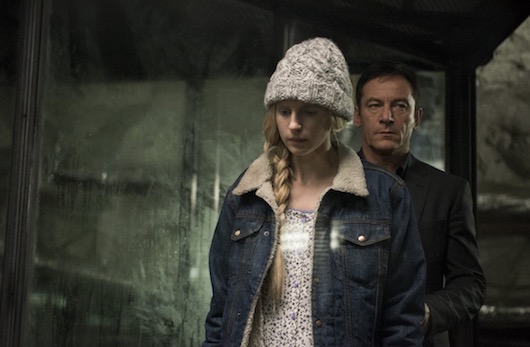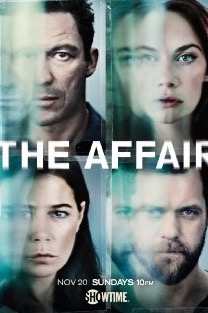 TV
TV In Which Brit Marling Died More Times Than We Can Count
 Tuesday, January 3, 2017 at 10:40AM
Tuesday, January 3, 2017 at 10:40AM 
Time to Go Online
by ELEANOR MORROW
The OA
creators Brit Marling and Zal Batmanglij
Netflix

Sometimes you really just need to get on the internet. Once there, you can safely check Drudge and maybe see what's in your e-mail. Prairie Johnson (Brit Marling) sounds like a euphemism for something terrible, but instead it's just the name of a woman with a similar feeling. Ms. Johnson prefers to be called The OA, which means Original Angel. After the OA returns to American life after seven years imprisoned in an abandoned mine, she just needs to get some wifi, so she gets in touch with Steve (Patrick Gibson). He gives her a mobile router in exchange for help in preventing his father from shipping him to a military academy.
Marling and collaborator Zal Batmanglij have been on the internet a lot in preparation for this eight episode Netflix series, which feels like the prodigious and exciting dramatic efforts of a newborn baby reaching out. Like their feature film Sound of My Voice, The OA has a somewhat different pacing than what we are used to from traditional movies and television, resembling more of a youtube video than a traditional dramatic series. This slight shift is liberating at a time when the inclination seem to over-explain in order to justify the expense of locations, budgets and actors.

Marling herself holds this diverse cast together. She is an exceedingly subtle performer. There is one brief scene where she is just curling up on a blanket that I think about a lot; she is in the first throes of being a person and she is literally deciding which way to turn. The teen actors Marling has cast around are just as talented, and their story in the present is as compelling as the tale of incarceration that the OA tells them at length. "You have to pretend to trust me until you actually do," the OA explains to them. "Before you close your eyes, I want you to imagine everything I tell you as if you are there yourself, as if you are me."

The OA describes a Moscow childhood, and we are not really sure if we are supposed to believe her or not. Even the series' title sequence seems more like a cosmic joke than a plaintive representation of reality. Beauty in The OA comes completely unexpectedly, but it holds no particular or specific meaning. It is only the details of the story meant to convince her new friends. Moscow is not Moscow, it is merely images from a helicopter. A tale is only as credible as the people telling it.

For seven years the OA is imprisoned by a scientist named Hap (Jason Isaacs) in what resembles a massive human terrarium. There her fellow captors discover five movements that, properly aligned, intend to create a way to escape from their captivity. This core tragedy never engenders much sympathy, and as much of a monster as Hap is, he seems to be going about things for generally positive reasons. He doesn't overly mistreat his captives, and even after he drowns them in a tank they always come back to life.

Isaacs himself is the worst performer in this entire milieu. I can understand why he keeps being cast as the prototypical middle-aged man, and here it maybe helps that he is so transparently not a scientist, since it gives a bizarre illegitimacy to the story the OA is telling. Still, the present tense of the OA's return to civilization is what really compels us, the "invisible life" of the four teenagers and one teacher (The Office's Phyllis Smith) who are drawn into her dark circle.

"Sometimes I just need to be alone," the OA explains to her adoptive parents, Nancy (Alice Krige) and Abel (Scott Wilson). Their bracing care for her is one of many instances of inadequate love in The OA. Everyone here, it seems, loves someone who cannot fully receive their affection. It is not that they cannot express love themselves, it is that they can never be loved in the way that they imagine would make them completely happy.
Eleanor Morrow is the senior contributor to This Recording. She is a writer living in New York. You can find an archive of her writing on This Recording here.

 eleanor morrow,
eleanor morrow,  the oa
the oa 








































